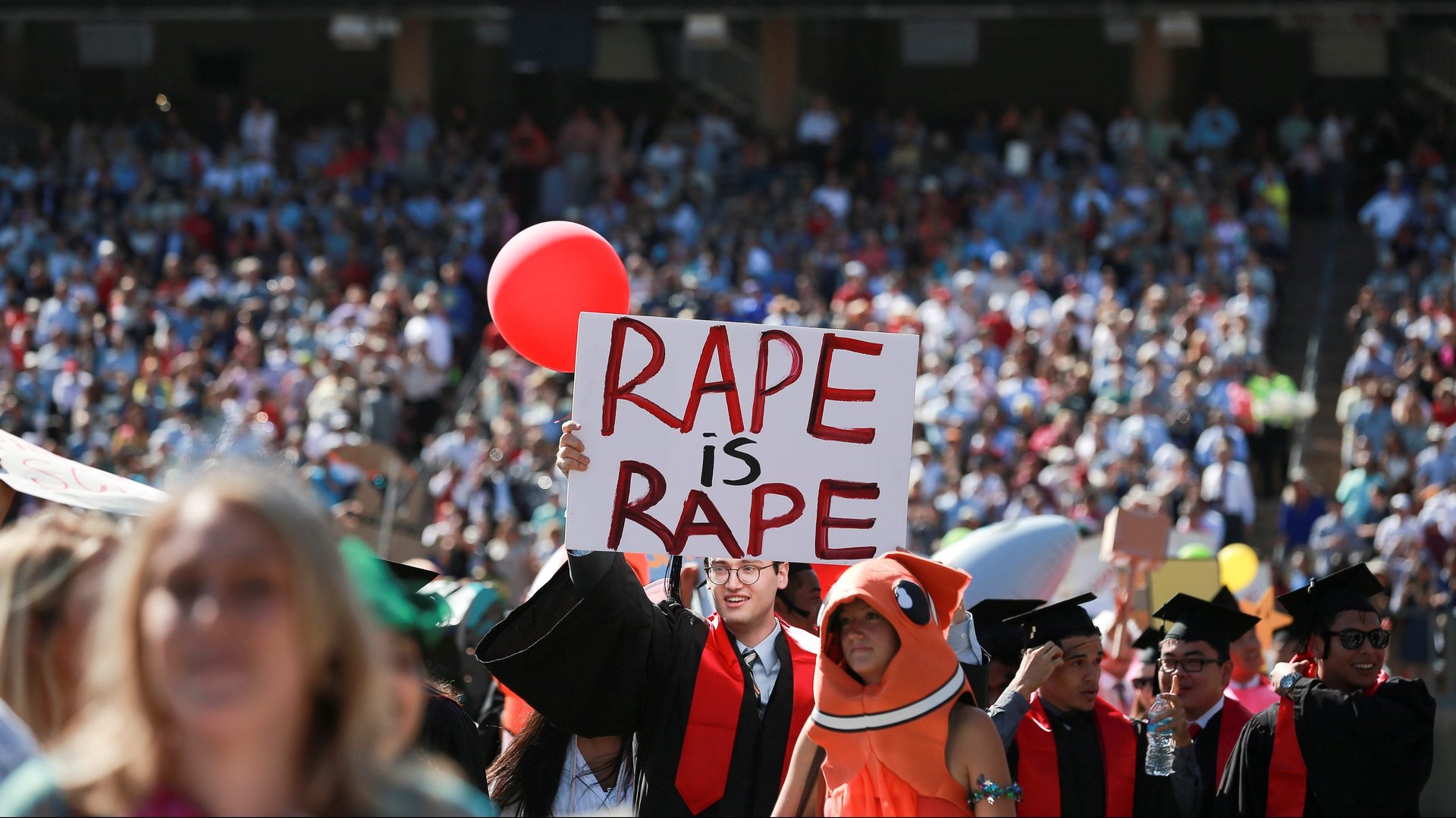New research finds one behavior that predicts whether someone is more likely to commit sexual assault on a college campus
University administrators across the US are struggling to grapple with what is causing the high number of incidents of sexual assault on campus. Nearly a full quarter (23.1%) of female undergraduate college students said they had experienced some form of unwanted sexual contact carried out by physical force, the threat of force, or incapacitation because of alcohols and drugs, according to a survey by the Association of American Universities that had 150,000 students participating from 27 universities.


University administrators across the US are struggling to grapple with what is causing the high number of incidents of sexual assault on campus. Nearly a full quarter (23.1%) of female undergraduate college students said they had experienced some form of unwanted sexual contact carried out by physical force, the threat of force, or incapacitation because of alcohols and drugs, according to a survey by the Association of American Universities that had 150,000 students participating from 27 universities.
Surprisingly, the problem isn’t not binge drinking—defined as having five or more drinks in a row—according to new research, published in the January 2017 issue of the Journal of Studies on Alcohol and Drugs. It’s where the binge drinking happens: according to the study, male students who regularly drink hard at bars and parties are more likely to commit sexual assault.
The study involved nearly 1,000 male US college students, who voluntarily filled out questionnaires online as freshmen and then again at the end of each of the first five semesters of college. Students were asked to report how often in the last semester they went to a party with a range of responses from never to everyday.
The data was anonymous and confidential and did not directly ask the respondents whether they had committed sexual assault, but instead asked a series of behavioral questions such as, “How often did you attempt sexual intercourse with a woman when she didn’t want to by giving her alcohol or drugs to make her intoxicated?” If a student answered yes to any such questions, they were considered to have committed an act of sexual aggression.
Over the five semesters, 18% of the respondents answered yes to questions that would imply that they had sexually assaulted a woman—including forced intercourse, “attempted” intercourse, and “unwanted contact.”
Initially, the data seemed to suggest that male students who regularly binge drank were more likely to commit sexual assault. But after taking into account certain personality traits—including problems with self-control, antisocial behavior, and impersonal attitudes toward sex—that link disappeared.
On the other hand, male students who had a higher bar and party attendance than the average student were also more likely to commit sexual assault—regardless of their personality traits. Further, in the semesters that a male college student attended parties or bars more often than his typical amount, his likelihood of being a perpetrator increased.
“College students know that bars and parties are the places where there are opportunities for hook ups and for sex and disinhibited behaviors,” says lead researcher Maria Testa, of the Research Institute on Addictions at the University at Buffalo.“The men who are attracted to those settings are the ones who are more likely to perpetrate sexual assault. They may not be perpetrating within those settings.”
Testa believes her team’s findings are relevant to universities looking to clamp down on sexual assault on campus. For example, she says, they can try to make parties and bars safer by training students to intervene if they are bystanders to a situation that might lead to sexual assault. As the data in the study suggests that the probability of sexual assault on campus is driven by the setting, working to make those settings safer, could be a good place to start.